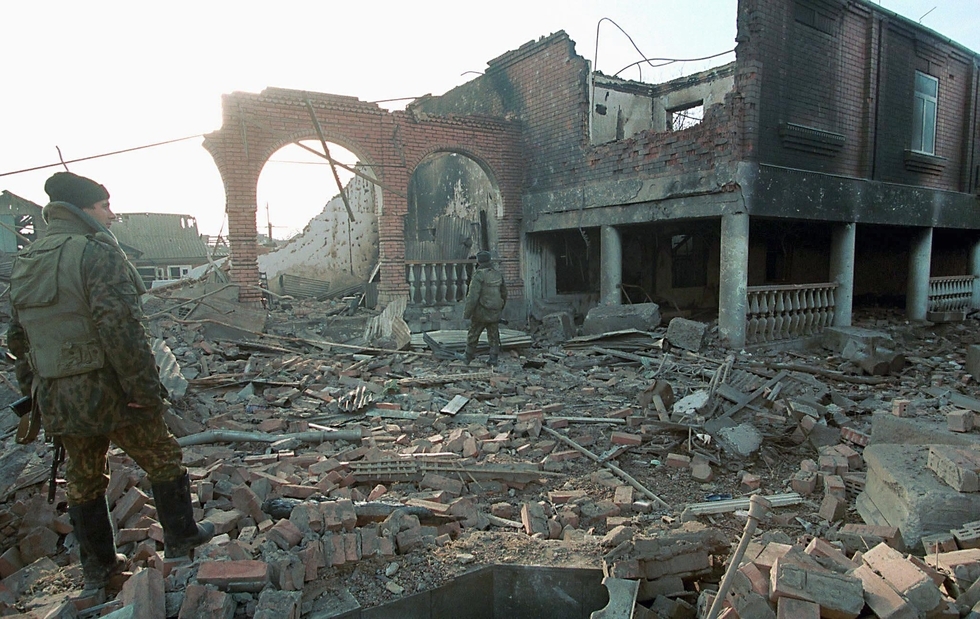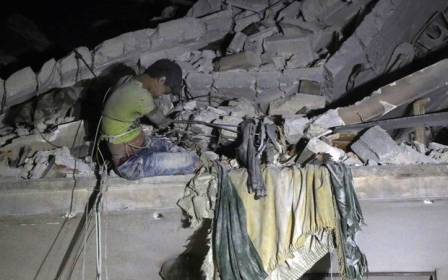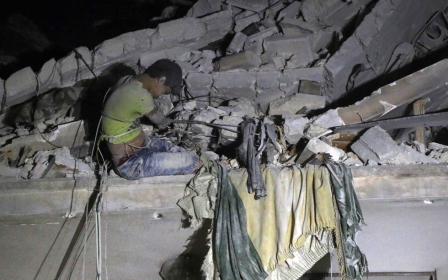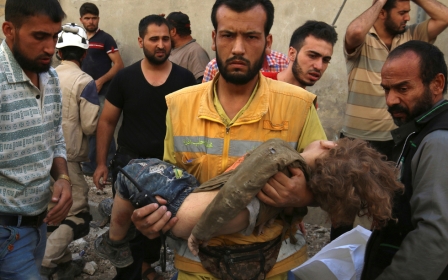Russian embassy in DC trolls US, UK on Aleppo touting Grozny

Russia's embassy in Washington, DC, trolled the US and UK in a tweet on Monday, comparing its bombing of the Chechen capital of Grozny 16 years ago to its offensive on Syria's Aleppo today.
In 2003, the United Nations described the Chechen capital Grozny as the most destroyed city on earth. Thirteen years later, the UN envoy to Syria warned that Aleppo may be totally destroyed in two months.
Russia besieged and bombed Grozny for months during the Second Chechen War to capture the city from rebels, including Islamist militants. While observers have drawn parallels between the Chechen capital and Aleppo to condemn Moscow, the Russian embassy in Washington used the comparison to make a case for the Kremlin’s intervention in Syria.
Russia, whose forces are fighting in support of the Syrian government, is leading a bombing campaign against rebel-held east Aleppo.
The embassy tweeted photos of the rebuilt Chechen city, addressing US Secretary of State John Kerry and British Foreign Minister Boris Johnson.
“#Grozny today is a peaceful, modern, and thriving city. Ain't that a solution we're all looking for? @JohnKerry? @BorisJohnson? | #Aleppo,” the embassy wrote in the tweet.
Internet users were quick to point to the misery brought to Chechnya by the Russian war.
The Russian army and pro-Moscow Chechen forces fought off separatists and Islamists to take control of Grozny in a campaign that started in 1999. The war ended the Chechen de-facto autonomy and returned the region to Moscow’s control.
"Russian forces have committed grave abuses, including war crimes, in their campaign in Chechnya," reads a 2000 Human Rights Watch report. "In Grozny, the graffiti on the walls reads 'Welcome to Hell: Part Two,' about as good a summary as any of what Chechen civilians have been living through in the past five months."
After the war, dozens of mass graves containing the remains of civilians were discovered across Chechnya.
"@RusEmbUSA, above how many mass graves are these nice buildings erected?!.. @JohnKerry @BorisJohnson," a visiting scholar in Carnegie's Middle East Programme, tweeted in response to the embassy's tweet.
Twitter has been used as a medium for political statements between officials and states in recent regional spats.
Last week, Iraqi Prime Minister Haider al-Abadi tweeted at Turkish President Recep Tayyip Erdogan to taunt him about his video call message during the failed coup in July after the latter told him to "know his place" in a dispute about the presence of Turkish forces in northern Iraq.
Middle East Eye propose une couverture et une analyse indépendantes et incomparables du Moyen-Orient, de l’Afrique du Nord et d’autres régions du monde. Pour en savoir plus sur la reprise de ce contenu et les frais qui s’appliquent, veuillez remplir ce formulaire [en anglais]. Pour en savoir plus sur MEE, cliquez ici [en anglais].




